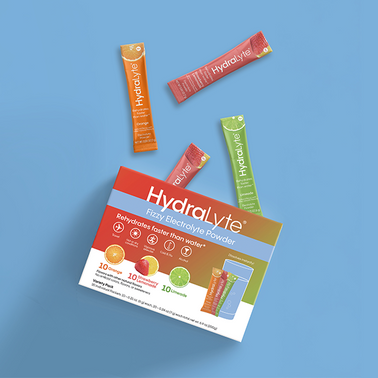Winter Is Here and So Is Dehydration Season
Many people mistakenly believe that dehydration is exclusively a summer issue, but unfortunately, that’s not the case. Not only is dehydration caused by prolonged heat exposure in the warmer months, but dehydration in winter can also be caused by many wintertime illnesses and lifestyle habits that put your health at risk. Here’s how the body responds to dehydration during the winter, how to know if you become dehydrated, and solutions for fueling your body with the fluids it needs all season long.Why People Become Dehydrated in Winter
In the warmer months of the year, we often feel thirsty, which is a clear sign that the body is losing fluids. However, the body actually loses fluids rapidly in the winter when the body doesn’t get as hot and sweat evaporates quickly in the cold air. Your thirst response is significantly diminished during the winter, up to 40 percent diminished according to some studies. In the cold, your blood vessels constrict to prevent blood flow to the extremities, drawing more warmth toward your core. This phenomenon tricks your body into thinking that it is more hydrated than it really is. Meanwhile, cold weather causes a disconnect between the brain and kidneys that leads to less water conservation and greater urine production. Ultimately, more urine excreted from the body means a greater risk of dehydration as well.
How the Body Responds to Winter Dehydration
When your body is dehydrated in the winter, many different health issues can arise. Being dehydrated goes far beyond merely feeling thirsty and affects everything from your immune system to your energy levels and your body weight. Dehydration in the winter often leads to muscle cramps, muscle fatigue, and overall exhaustion. In some cases, it can even lead to loss of balance and coordination, as well as stroke. Many people mistake actual thirst for hunger and end up overeating as a result. This habit can lead to weight gain because a poorly hydrated body is less able to control appetite and break down fat to produce energy.
Factors That Lead to Winter Dehydration
One of the major factors that lead to winter dehydration is sweat. You may not feel like you’re sweating when it’s cold outside because the cold, dry air makes sweat evaporate much quicker than in the summer. Winter sweating is often the result of wearing many layers of clothing to conserve body heat. In the winter, you also lose more fluids through respiratory fluid loss. Whenever you can see your breath as you exhale in the cold, remember that your body is losing more fluids than usual through these vapors. Furthermore, winter season holiday parties often involve alcohol, which further dehydrates the body while consuming drinks and even the next day. Lastly, humidity levels have been known to play a big part in dehydration. Typical humidity in your home is 40% but when you’re running the heater full-time during the winter months it is easy for the relative humidity in your home to drop below 20 percent.
How to Know If You’re Dehydrated This Winter
The signs and symptoms of dehydration are similar regardless of what season it is. Since you may not actually feel thirsty in the winter, other common symptoms of dehydration to watch for include headaches, dizziness, fatigue, dry mouth, and dark yellow-colored urine.










